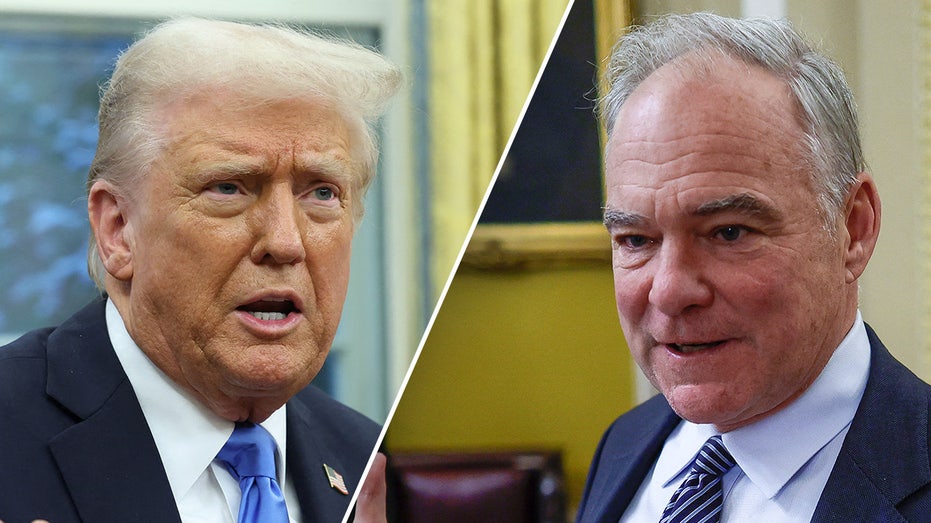
The proposition that accountability underpins effective corporate governance is arguably unimpeachable. The logic of that hypothesis establishes the inseparability of both concepts in the private, not- for-profit, and, the public sector, for not too dissimilar reasons. Because, irrespective of the configuration of the concerned entity, the company directors, political leaders, and managers, are accountable to citizens, owners, regulators, shareholders, and stakeholders, as the context justifies, at the level of a sovereign nation, corporate entity, ministry or non-departmental public agency.
The laser focus on the public sector is therefore distilled from the de facto social contract between the public, who entrust their taxes to government (public sector) in the legitimate expectation of leadership, consistent optimal service delivery which impact their daily lives relative to prudent financial management of national resources straddling defence, education, healthcare, infrastructure, security, transport, welfare etc; and, regarding private firms, leadership, effective management of shareholders’ resources, whilst sustaining investors’ and stakeholders’ confidence. Extracting global examples, this analysis examines corporate governance and public sector accountability as a cornerstone for African socio-economic transformation. Corporate governance embraces the modus operandi, practices, processes, and rules, by which corporate entities, widely defined, are directed and controlled.

It is as applicable to a company, or other private entity, whether or not solely focused on profit-making, as it applies to a sovereign state, where the latter is conceived, as a corporate entity, from a geoeconomic, geostrategic, and jurisprudential prism. The Organisation for Economic Cooperation and Development (OECD, 2004) asserts that corporate governance guides how an entity “is directed and its relationships with its shareholders and stakeholders.” It has also been characterised as “a system of law and sound approaches by which corporations are directed and controlled,focusing on the internal and external corporate structures with the intention of monitoring the actions of management and directors and thereby, mitigating agency risks, which may stem from the misdeeds of corporate officers”; by the Journal of International Banking Law and Regulation (2012).
The public sector includes government departments, ministries, agencies, parastatals, nationalised firms, and entities, which are majority-owned and controlled by government whether at national, regional, state or local government level. It wields enormous influence and plays a critical role in the functioning and socio-economic development of any country devoid of the political configuration therein. To illustrate, although government departments are typically headed by either elected or unelected Ministers/Secretaries of State.
They are charged with overseeing the manifesto commitments, some of which would have morphed into national policy, of the ruling democratic political party, or, regime, in none democratic political milieus. However, the day-to-day administration and execution of policy is led by the relevant chief executive or permanent secretary. The latter oversees a bureaucracy of public employees (civil servants) responsible for the actual delivery of policy which impacts the lives of ordinarily people on a day-to-day basis straddling agriculture, defence, education, health, housing, infrastructure, transport, law enforcement, technology etc.
Be that as it may, the efficiency, necessity, role, size, and scope of the public sector, vis-à-vis corporate governance, has come under ferocious scrutiny, in several jurisdictions in recent years, on five key grounds. One, ideology. Two, inefficiency.
Three, unaccountability. Four, corruption. Five, AI and disruptive technological innovation.
On the first charge, ideology, it is felt in some jurisdictions, like the United States under the current Trump Administration, that the public sector is an unwieldy obstacle to reform, and the holistic implementation of maximalist “America First” socio-political doctrines. The argument advanced is that the public sector is thoroughly inefficient and justifies a radical corporate governance and procurement reset. South African billionaire, and the world’s richest person, Elon Musk, leads the charge.
In March 2025, the Department of Government Efficiency (DOGE), scrapped the US Agency for International Development (USAID), severed contracts totalling over $900 million at the Education and Health Departments, and is overhauling contracts which could, according to the Wall Street Journal, result in savings “closer to $2.6 billion over the next year..
.” Regarding the second count, citing inefficiency, the UK government scrapped National Health Service (NHS) England, the executive agency of the Department of Health, in a radical move which will impact 9,000 jobs, expected to save £500 million and, according to the Prime Minister, Keir Starmer, “free up money for front-line services” To put this in focus, “frontline services” implies that resources goes directly to patient care, executed by doctors, nurses and health-workers, rather bureaucratic overheads and operational costs at NHS England! The third count appertains to the accountability deficit in corporate governance. The philosophical contention here is that elected political leaders ought to be responsible, and therefore accountable, to the electorate for the policies, which are being executed in the name of the people, for the benefit of the people, with taxes, paid by the people.
It is upon this foundation that the UK government justified scrapping NHS England to bring healthcare “back into democratic control”. The fourth contention engages an anti-corruption crusade to safeguard public resources, prosecute offenders, and the enhance public confidence with corporate governance, which as was earlier illustrated, encompasses governance, in its wider characterisation. It is the foundation for Nigeria’s Economic and Financial Crimes Commission (Establishment) Act 2004 (as amended).
Its key functions, stipulated in section 6, include: the investigation of all financial crimes including advance fee fraud, money laundering, counterfeiting, illegal charge transfers, futures market fraud, fraudulent encashment of negotiable instruments, computer credit card fraud, contract scam, etc. It also includes the co-ordination and enforcement of all economic and financial crimes; the adoption of measures to identify, trace, freeze, confiscate or seize proceeds derived from terrorist activities, economic and financial crimes etc. Equally, the integration of the global financial architecture, and emerging challenges within nations, given dynamic risks, is a key rationale for the International Monetary Fund’s 2023 Anti-Money Laundering and Combating Terrorist Financing Strategy.
It is of universal application and aims to enhance the integrity of the global financial system, the success of which will benefit African countries and the Global south, as much as it will benefit the G7 and the Global North. The fifth ground, Artificial Intelligence and disruptive technological innovation, will continue to transform not only holistic corporate governance, and the public sector, but, more widely, the pulsating interdependences of humanity, machines, and work, for noble and ignoble grounds. In short, AI is not just a futuristic notion.
It’s here and utilised daily in banking operations, cyberwarfare, finance, healthcare, education, etc. It’s little wonder that technology billionaire innovator, Bill Gates, in March 2025, opined: “with AI, over the next decade, (intelligence) will become free, commonplace—great medical advice, great tutoring.” Earlier in January 2025, the World Economic Forum’s (WEF) Future of Jobs Report 2025 forecast AI to trigger the most significant labour transformation since the 18th Century Industrial Revolution.
It envisages that by 2030, AI and transformative technologies will impact 86 per cent of businesses, sparking the creation of 170 million new roles worldwide while making 92 million existing jobs redundant. Indeed, the paradox of the permanence of change holds true relative to corporate governance and public sector transformation in Africa and globally. Nations progress at different tempos and the radical transformation of corporate governance and the public sector in advanced economies is not an automatic adoption template for African nations.
For starters, the socio-economic development, experiential democratic maturity, welfarism, labour market buoyancy, and productivity fundamentals are entirely different. For instance, OECD and ILO statistics established that in 2020, 22.5 per cent UK employees were in the public sector.
In 2022, Canada and the USA had 21.2 per cent and 13.4 per cent respectively.
Whereas Nigeria and Morocco had 3.6 per cent and 8.4 per cent respectively.
In other words, the swingeing cuts in public sector employees in the G7 economies (Canada, France, Germany, Italy, Japan, the United Kingdom, the United States, and the non-enumerated member, the European Union), would be absolutely unthinkable in Africa in the short term and medium terms at least. Concluding, the essentials of corporate governance, widely defined, – accountability; transparency; fairness; effective leadership; integrity; responsibility; tackling corruption; catalysing market reforms, resilience; are non-negotiable. Statutory frameworks like the 1999 Nigerian Constitution (as amended), the Companies and Allied Matters Act 2020, the Investment and Securities Act 2024; and policy frameworks like the Nigerian Code of Corporate Governance (2018), the Central Bank of Nigeria (CBN), Corporate Governance Guidelines (“the Guidelines”) for Commercial, Merchant, Non-Interest, Payment Services Banks and Financial Holding Companies (2023); the Ghanaian National Code of Corporate Governance (2023), the Rwandan Capital Market Code of Corporate Governance (2024), South Africa’s King IV Code of Corporate Governance (2017), et al; are necessary, albeit insufficient strategic and operational levers for embedding robust corporate governance in the public sector on the continent.
The accountability obligation to shareholders, stakeholders, regulators, and citizens, as the context determines, justifies it. However, the exemplified visionary leadership, courage, drive, political stability and the cessation of war, disease and hunger, policy certainty to inform strategic planning to embed enduringly effective corporate governance, remain pivotal. Furthermore, the ubiquity of AI and the technological revolution demands creative adoption in Africa, like the introduction of AI in African educational curricula, retraining, and reskilling in critical themes like cybernetics, cybersecurity, machine learning, neurosciences, programming, robotics et al, notwithstanding extant global volatilities and the ascendancy of economic nationalism.
Ojumu is the Founder/Principal Partner at Balliol Myers LP, a firm of legal practitioners and strategy consultants in Lagos, Nigeria, and authored the internationally acclaimed Dynamic Intersections of Economics, Foreign Relations, Jurisprudence and National Development (2023)..















